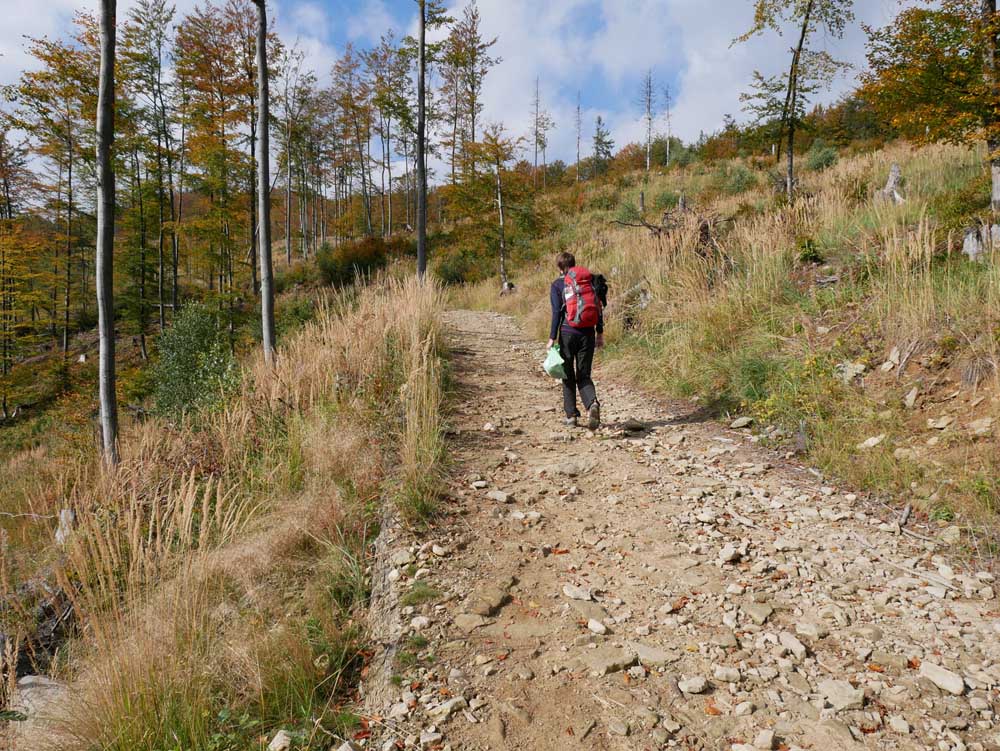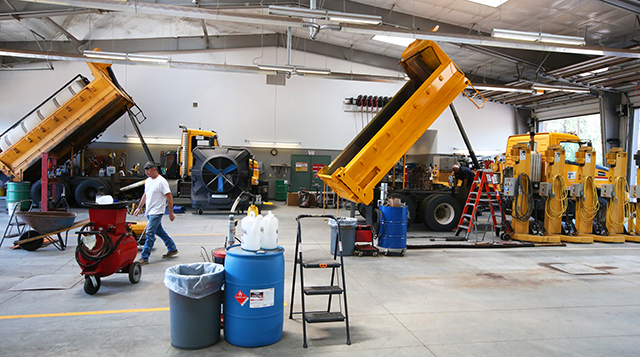While exploring trails, take steps to preserve them, too
Published 12:00 am Thursday, November 8, 2018

- The saying “take only pictures, leave only footprints” is not a guideline that should be ignored. As you’re exploring, follow the “Leave No Trace” principles.(Gregory Fish/Dreamstime/TNS)
COLORADO SPRINGS, Colo. — As more people continue to discover how amazing Colorado is, more people are hitting the trails than ever before. We think it’s great that people are discovering a passion for the outdoors. As this group of enthusiasts continues to grow, the outdoor recreation community will have a louder voice, able to help drive legislation and funding that might preserve the great outdoors. However, with this rapid growth comes the necessity for people to learn how to interact with nature in a manner that is the least invasive way possible. By doing this, we can help to ensure that Colorado’s natural treasures are still around for future generations to enjoy. Here are 6 tips that will help you preserve the outdoors.
Stay on the trail.
Trending
Often, a lot of careful planning goes into designing a trail so that it has the least environmental impact on the surrounding area. From changing animal traffic to disrupting water flow, the route hikers take through nature can have big implications. On the most basic level, off-trail foot traffic compresses top soil, compacting the ground beneath it. Not only can this make it more difficult for new plant growth, it can also accelerate erosion, changing the way rainwater flows across the terrain thus washing out sections that were once secure. As more time passes, the effects of these changes become more visible, potentially destabilizing entire ecosystems. Additionally, going off trail can be dangerous. I know … you’re great at exploring and you won’t get hurt. But, if you do happen to injure yourself on unmaintained terrain off-trail, getting help will likely be more difficult. Make it easy on yourself and Colorado’s natural landscape by staying on the path.
Always leave no trace.
The saying “take only pictures, leave only footprints” is not a guideline that should be ignored. As you’re exploring Colorado, follow the “Leave No Trace” principles. These principles are not designed to minimize the effects of humans in nature, including tips like not leaving trash behind, packing waste out with you (including waste left by pets) and leaving terrain as is (don’t dig a hole, don’t keep a memento). Be aware of how your actions impact nature. Want some bonus points? Bring an extra trash bag with you while you’re hiking or camping to collect garbage left behind by less responsible outdoor enthusiasts.
Don’t feed the animals.
No, that deer should not be dining on your Flamin’ Hot Cheetos. No, you shouldn’t toss your banana peel on the ground because “something will get it.” Introducing animals to off-diet foods and unnatural food sources can cause very real problems for specific creatures and entire species. For one, a food that isn’t on an animal diet can be harmful to that creature. If they were not designed to eat it, it’s probably not good for them. Second, feeding animals can alter their eating habits, teaching them to look to humans for food instead of instinctive food-gathering means their species has used for centuries. This can cause a reliance on humans for nourishment, something that makes a species less capable of surviving in the wild while also training them to lurk around humans — something that can result in animals being euthanized.
Follow the posted rules.
Trending
Signs that say things like “stay off the log” or “no dogs” aren’t just suggestions. While some of these rules are made for the protection of participants, many are made to protect the environment. If a trail forbids dogs, it’s probably because their presence can have an impact on local wildlife habits or alter the composition of the soil. If a sign says not to get in the water at a remote lake, it’s probably because that lake’s ecosystem is fragile, likely impacted by something as simple as the natural oils on human skin. If you want to “break the rules” and “be rebellious,” nature isn’t the spot to do it. The stakes are simply too high and too difficult to reverse.
Leave no noise.
Often overlooked, noise pollution is an issue that continues to grow in severity as more people get out there to enjoy the natural world. While bringing a portable speaker on a hike might seem innocent, it can have a huge impact. Imagine you’re a mouse in the woods, spending most of your days hiding from predators by using your great hearing as a key tool for survival. Fifty years ago, you might have heard a hawk diving towards your position while the hawk was 100 feet above you. However, as ambient noise from planes, cars and people increases, you might only hear the diving hawk when it’s 15 above your head. That means your reaction time will have to be that much better if you want to survive. As a result of more noise, prey populations can be decimated in certain areas, allowing a predator population to temporarily boom before they run out of food, thus forcing the predators to eat something else, move to a new area, or die. If the predator population is unable to quickly adapt, the latter seems most likely. Additionally, the stress caused by additional noise has been shown to lead to health implications among animals and even plants. If you insist on listening to music while you’re out and about, try wearing headphones, or at least be aware of how loud you’re being and where you are.
Prioritize fire safety.
In case you haven’t noticed, Colorado is often extremely dry. This means that fire safety is a huge concern here. Never burn anything unless it’s controlled with substantial borders (for example, a fire pit). It’s also important to be aware of local fire bans and the current weather. Wind can cause fire to spread quickly. If there’s any question about safety, don’t burn. Plain and simple. One mistake can mean thousands of natural acres lost for years, not to mention the potential impact on human life.
Preserving Colorado is a team effort. One person acting irresponsibly can have an impact that lasts for years. If you’re already aware of everything mentioned on this list, do your best to teach others that information. Trying to save the world alone is frustrating, but together, we can make a difference.








